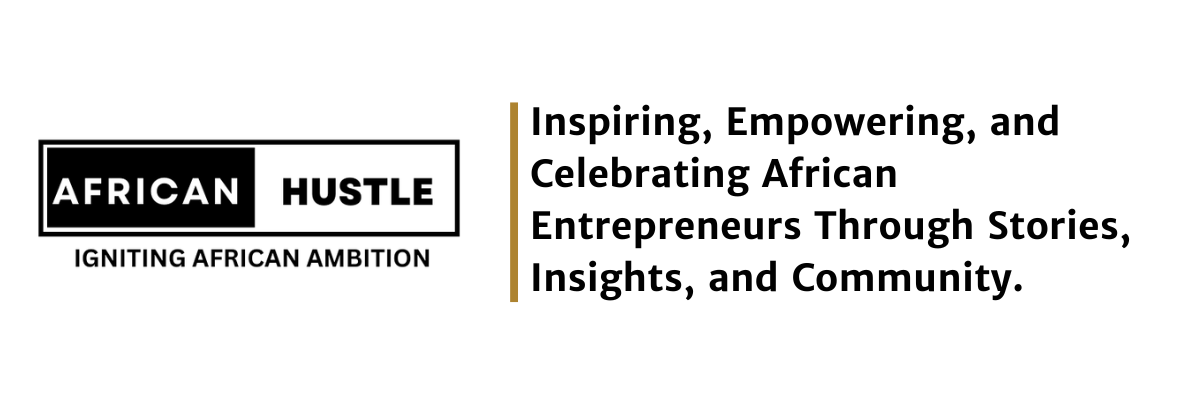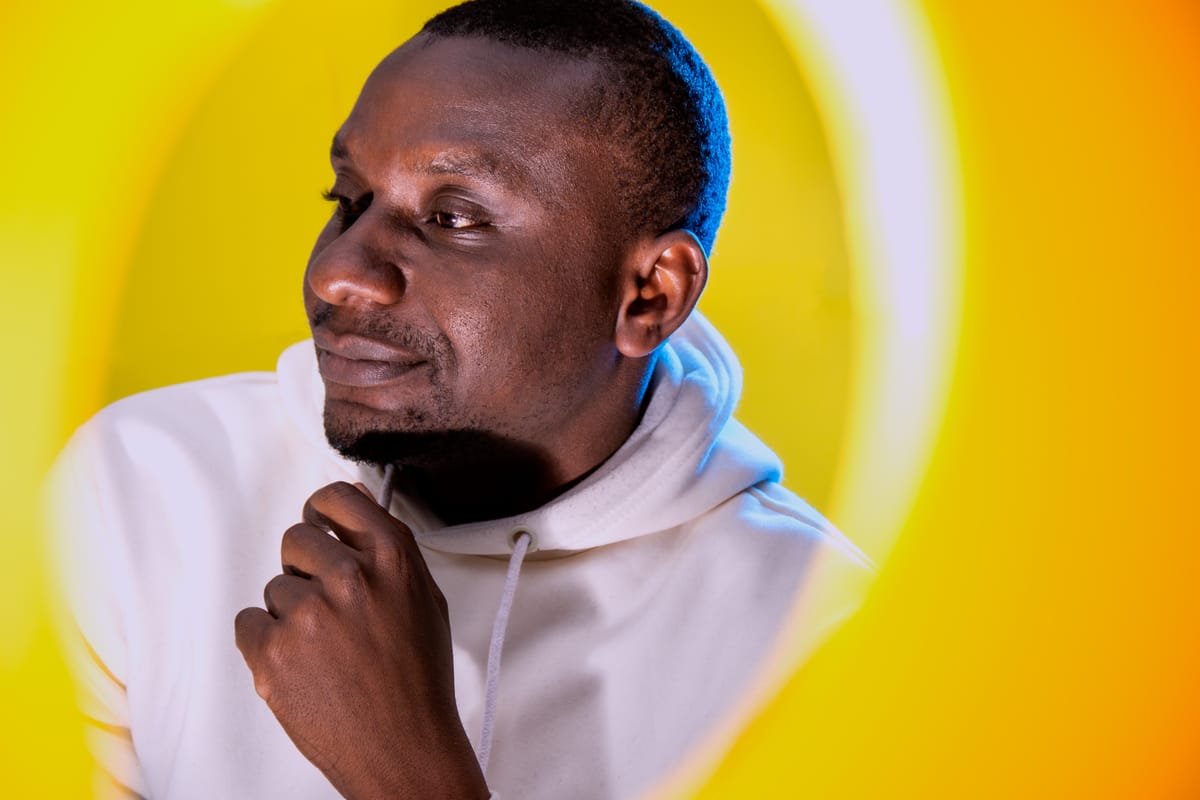
Welcome to African Hustle! Your bi-weekly dose of inspiration and smart insights into African entrepreneurship — featuring real stories about tech, culture, startups, founders, and innovations shaping the future of the continent.

Main Issue
At some point, we must choose to be unselfish.
There is an old proverb that says: “A society grows great when old men plant trees in whose shade they shall never sit.” It challenges us to think beyond the present and invest in a future we may never fully experience.
In an age addicted to instant gratification, the idea of long-term commitment feels almost alien.
Be it in life, business, or community, we all now want what we want, and we want it now!
Microsoft became profitable the same year it was founded, but it took Amazon nearly a decade to turn a profit. Facebook needed five years. Google took four. Yet some of us want to quit after just six turbulent months?
We are selfish with our potential. Because we want to be instantly rewarded, we traverse paths of mediocrity, earning nickels and dimes where we could be building something truly transformative.
Would you plant a baobab tree knowing it might take 200 years to bear fruit, and could live on for 5,000 years?
Most of us are not building scalable businesses that can outlive us. We are too concerned about bread and butter issues that we end up leaving no legacy for our children and grandchildren!
And we can almost be forgiven! When anxieties about day-to-day survival are so pressing in our dear continent, where the majority lives on less than $1.90 a day.
But I reiterate that at some point, we have to choose to be unselfish with our time, our vision, and our energy.
After our last publication, Let's Be Billionaires, I received 2 interesting messages!
The first was from one person, who, like me, is a firm advocate for African entrepreneurship and believes it is the answer to address poverty. He asked if he could be an ambassador for African Hustle! Not for the prospect of fame or financial gain, but just to amplify the message we are promoting on the platform.
As I was busy internally debating and somewhat doubting his sincerity, a second message came in!
This time, a peer asked me something unexpected:
Will you be a cultural ambassador to the G20?
What he was proposing for me to do was exactly what I was busy doubting someone could do for me!!!
This call wasn’t just to me but to every reader of the African Hustle.
What my peer offered isn’t a paid gig. No! There’s no formal recognition. No accolades. Just planting those baobabs, whose fruit we might not eat, and whose shade we may never sit in.

Just what is the G20, though?
The G20 is an international forum of the world's major economies, both developed and developing. Founded in 1999 following the Asian financial crisis, it brings together the biggest players to shape global economic and financial policies.
Currently, the G20 consists of 19 countries and two regional entities: the European Union (EU) and, as of 2023, the African Union (AU).
AU is the newest voice at the table. But critically, South Africa, the only African country with individual G20 membership, is serving as President for 2025.
This is monumental. The G20 members include the world’s major economies, representing 85% of global GDP, 75% of international trade, and two-thirds of the world’s population.
Just what am I driving at?
The G20 Summit and South African Presidency is Africa’s best chance in decades to move from policy taker to policy shaper in global decision-making. For so long, we have accepted narratives and decisions about Africa made without Africa.
Now we need Africa to:
Reclaim narrative power
Align global solutions with African realities
Push for a fairer global economic architecture that doesn’t sideline our emerging economies
Since we are talking about planting baobabs here, do not just let your mind focus on your local business! Look at the good of Africa.
What Africa Gains from G20 Membership via the AU?
We often say we broke free from colonialism, but today, we wear the overalls of neocolonialism. With the AU at the G20 table, that changes. Hopefully!!!
The discussions about us, without us, have to stop. We are hoping that we will gain:
Permanent Voice in Global Economic Governance
The AU’s seat means Africa can now shape decisions on trade, finance, climate, and tech policy alongside the world’s largest economies.
Agenda-Setting Power
Africa can now insert continental priorities, like debt reform, climate adaptation funding, food security, and industrialisation, into G20 negotiations.
Collective Leverage
The AU represents all 55 African countries, not just South Africa. Negotiating as a bloc increases our bargaining power. Just last week, I highlighted that four of Africa’s largest economies combined still have a GDP smaller than New York City. We’re stronger together.
Access to Resources and Platforms
Africa now taps into G20 working groups focused on:
🟢 Digital infrastructure
🟢 Global tax policy
🟢 Pandemic preparedness
🟢 Green energy
🟢 Trade facilitation
Why South Africa’s Presidency of the G20 in 2025 Matters for Africa
Africa’s story has often been told from the outside, looking in. South Africa is there to speak from within.
South Africa is the first African country to lead the G20, and it’s using that platform to centre African issues.
Championing Inclusive Growth
SA’s presidency theme, “Solidarity, Equality, and Sustainability”, puts African development at the heart of G20 priorities.
Driving Reform in Global Finance
South Africa is pushing for:
Multilateral development bank (MDB) reform to better serve developing economies.
Fairer debt relief and restructuring mechanisms for heavily indebted African nations.
IMF and World Bank reform to reflect Africa’s economic weight.
Focus on Technology & Innovation
South Africa is advocating for responsible AI, increased digital access, and tech investment on the continent, key drivers of future competitiveness.
Showcasing Africa's Agency
Hosting G20 events across South Africa demonstrates African leadership on the world stage, not as a passive recipient of aid, but as a global co-architect of policy solutions.
What role is there for the Hustler?
Even as I write, I’m tempted to think all this talk of the G20 is a distant reality for big-bellied elites. But again, as a true Game of Thrones fan, I am reminded of a Tyrion Lannister quote, which says:
A wise man once said a true history of the world is a history of great conversations in elegant rooms.
Simply put, if we don’t find our voice and knock on the doors to the elegant, we will forever be excluded from great conversations.
This reminds me of a picture that created a buzz on LinkedIn some days after the Africa CEO Forum.

The image sparked palpable frustration and disappointment among many Africans due to the apparent lack of diversity, particularly the absence of Black representation, at a table of tech founders said to have collectively raised over $200 million in funding.
But were you aware that there was an elegant room called the Africa CEO Forum?
Inclusion comes through participation, not invitation.
So, how do you participate in the G20?
The G20 works with independent engagement groups made up of civil society, business, youth, and more. These groups submit official policy recommendations to G20 leaders.
Join a G20 Engagement Group
Engagement Group | Who It's For | What They Do |
|---|---|---|
C20 (Civil 20) | NGOs, activists, faith groups | Channels citizen voices into G20 via policy briefs & public forums |
Y20 (Youth 20) | Youth leaders under 30 | Engages youth on climate, jobs, digital, and equality |
B20 (Business 20) | Entrepreneurs, business networks | Advocates for private-sector-driven growth & investment |
L20 (Labour 20) | Trade unions, workers' organisations | Pushes for fair wages, worker protection |
W20 (Women 20) | Women’s rights orgs | Advocates for gender equality, care economy, and inclusion |
T20 (Think 20) | Academics, researchers | Produces evidence-based policy ideas for G20 adoption |
Use Your Voice Online
Share personal stories, solutions, and critiques via blogs, op-eds, videos, or podcasts tagged to G20 themes.
Use social media to amplify grassroots views using hashtags like #G20SouthAfrica
The African Hustler’s Manifesto to the G20
Trade, Not Aid
We are not begging for handouts. We are asking for access, fair access to markets, capital, and technology. African businesses face unfair tariffs, restrictive regulations, and underinvestment due to outdated perceptions. Level the playing field so we can compete, not just participate.
Reform Global Financial Systems
The current systems often penalise African countries through higher borrowing costs, rigid loan conditions, and underrepresentation in global decision-making bodies. It's time for a more inclusive financial architecture that reflects today's world.
Value Our Raw and Digital Wealth Fairly
Whether it's cobalt, lithium or cocoa, Africa contributes massively to the global supply chain. But we must move from being mere suppliers to becoming processors and manufacturers. Let’s work toward value addition on African soil.
Climate Justice Is Economic Justice
Africa contributes the least to climate change, yet suffers some of its worst effects. Climate finance is unevenly distributed across continents, with East Asia and the Pacific receiving the most. Why is Africa receiving less climate funding when it is the one most disproportionately affected by climate change?
Partner with African Entrepreneurs Directly
We are building solutions tailored for our communities: clean energy, fintech, agri-tech, and health innovations. Redirect a significant portion of development finance and investment directly to African-led ventures and ecosystems, not just through governments or multinationals.
Resources for Getting Involved
Official G20 South Africa Website: g20.org/g20-south-africa
South African Department of International Relations and Cooperation (DIRCO): dirco.gov.za
Engagement Group Websites:
The G20 can only become truly inclusive if people like YOU get involved.
Let's start planting baobabs. The work may outlive us, but the fruit will feed generations.
Choose to be unselfish. Choose to think generationally. Engage. Participate. Shape the future of Africa, not from the sidelines, but from the centre.
What would YOU say to G20 Leaders?
Enjoyed this post? Share it with someone who might find it helpful and encourage them to subscribe!
If we missed something, we’d love to hear from you — hit reply and let us know what insights you want us to dive into next.
And if this email was forwarded to you, you can sign up here!

